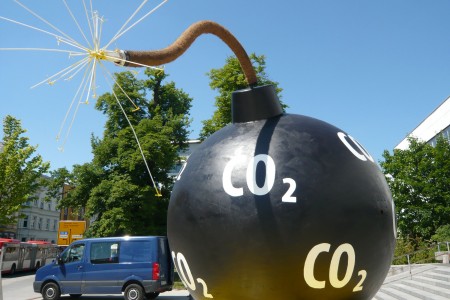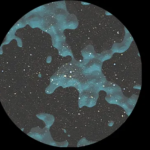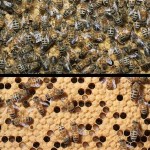May 30, 2016 – The term “smart rocks” is one defined by researchers seeking the perfect storage medium for sequestering carbon dioxide (CO2). At Heriot-Watt University in Edinburgh, researchers are trying to synthesize the perfect rock for capturing CO2. They want to grow “smart rocks” to understand how liquids and gas permeate porous subsurface strata.
The team is lead by Mercedes Marto-Valer who has stated, “while extensive work over the years has given us some idea about how liquids and gases move through porous rocks at a large scale, we haven’t been able to understand how the process works at the very small pore scale, and how that process can differ between different types of porous rocks.”
The team has set out to simulate through 3D printing different types of porous rocks and embed them with sensors that can report behavior of embedded liquids and gases. The laboratory is designed to simulate the conditions deep underground and provide microscopic details on the chemistry of the interactions between the rock and sequestered CO2.
Marto-Valer and her team recently received a European Research Council award worth 3 million Euros, one of 16 projects from 1,900 submissions selected by the Council under its advanced innovation and research program.
Maroto-Valer describes the research study in greater detail, “by 3D printing our own core samples we can decide exactly what sort of rock we wish to study, and implanted micro-sensors will be able to tell us directly, in real-time, what is going on as gasses and liquids pass through them. This fundamental knowledge at such a tiny scale will feed hugely into our understanding of such processes at the large scale and enable us to maximize the success of industries from oil extraction to water safety and the storage of captured CO2.”
Carbon capture and sequestration (CCS) is only now emerging from the years of neglect by the energy industry who, for the most part, were reluctant participants in the research to combat rising levels of CO2 in the atmosphere. Now with their sources of revenue, the extraction of oil and gas, being threatened by growing global action to combat climate change, the industry rather than mothballing CCS projects, is seeing the technology as the only solution available to them to achieve as close to a zero emissions future, or otherwise face having to strand fossil fuel assets in the ground for centuries to come.
In 2015 there were 15 working CCS facilities around the world. An additional 7 were expected to come online in 2016. That makes 22 projects in total. So just how many of these facilities do we need to achieve zero emissions from the fossil fuel industry to save it from itself? Taking into consideration coal, oil and gas, the number is minimally a factor 100 times greater than the current capacity of existing and pending CCS facilities. And finding the right underground conditions in 2,200 locations to store the CO2 around the globe will be no mean feat.
Picking the wrong medium is a big concern. University of Southampton and University of Edinburgh researchers are studying the risks of storing CO2 in saline aquifers under the North Sea. They have identified the potential for weak spots in submarine sediments that could compromise storage. Possible CO2 leakages could lead to large volume gas release. In a ten-year planned study the two universities hope to better understand sedimentary marine topography and the underlying geology so that chimney structures found in rock formations can be mapped and better understood. Researchers need to identify the physical laws that govern potential storage sites to identify more stable repositories for CCS. For the fossil fuel industry this may be there only remaining lifeline.
















